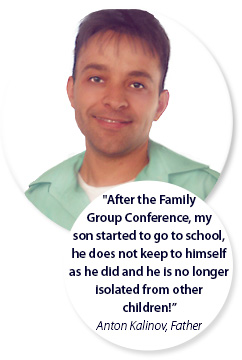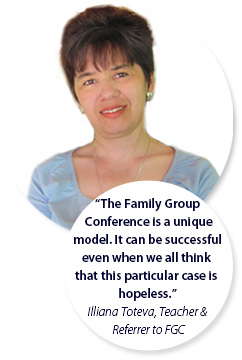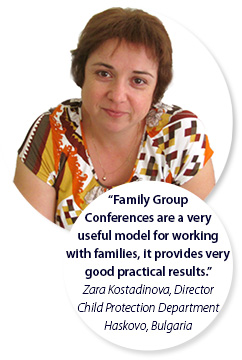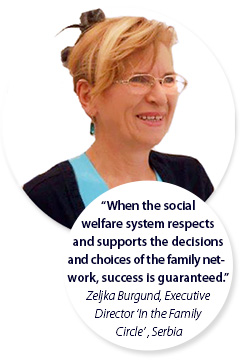Conflict of loyalties
“How can I involve the father of three children if I literally can’t exchange a word with him?” a child protection officer asked us. Four years ago, three girls had been removed from their home and placed in a foster family. Their mother had died and the father had mental health problems and was hospitalized. In the meantime, he was doing well and wanted the children back, but he only spoke Korean and could not communicate with the child protection officer and with the foster parents. The youth protector said: “It is clear that he is very dissatisfied and angry.”
Letter
We found a South Korean coordinator who was able to explain to the man what we could do for him and who was also able to tell that the youth protector was positive about a meeting with people who were important to him and the children. The coordinator says: “The father had a new partner, who had two adult children of his own. They all wanted to think along. It was difficult for the children, they had a good time with the foster parents, where they had been living for four years. But they also wanted to go back to their father. The circle, consisting of father, partner, adult children of the partner and their partners and four friends of father, has helped well with this conflict of loyalties. The foster parents had written a nice letter, which said, for example, how the children liked to play boardgames with each other.”
Game night
“This has been taken into account in the plan. The children would go back to their father. They could stay at the same school and keep the same friends. They keep in touch with the foster parents. And their stepmother’s children provide a connection with their sports clubs and friends. They have also come up with the idea of having a game night together once every two weeks. The youth protector, who came to the meeting especially on Sunday, was very satisfied. She was happy that the stepmother’s adult children are so involved. And with the new cooperation with the father. He supports the plan and is happy with the professionals that remain involved. The distrust is largely gone and that is very nice for the children. They don’t have to take sides and have a lot of people they can turn to.”
A story from the Netherlands
<< back to overview




